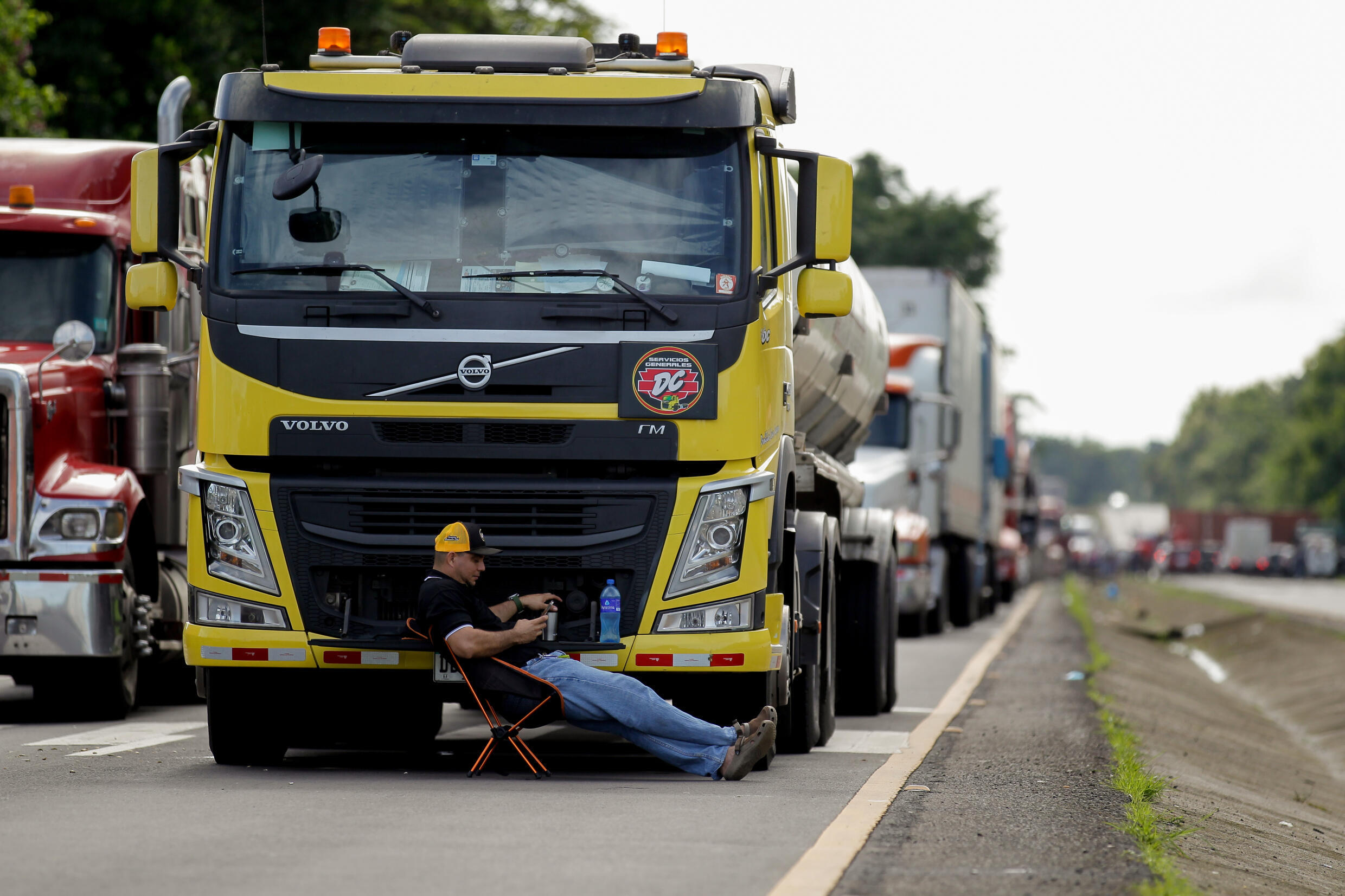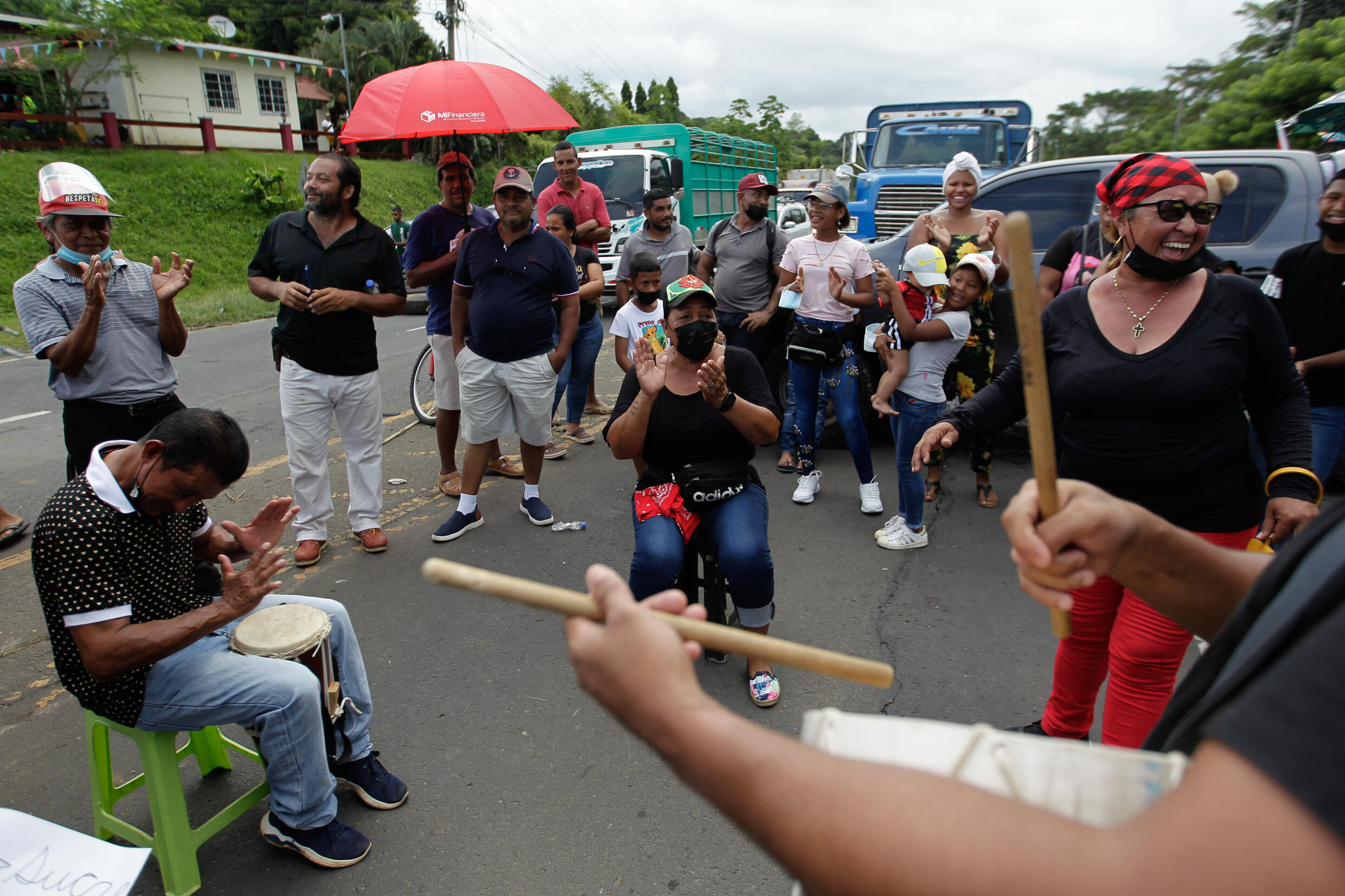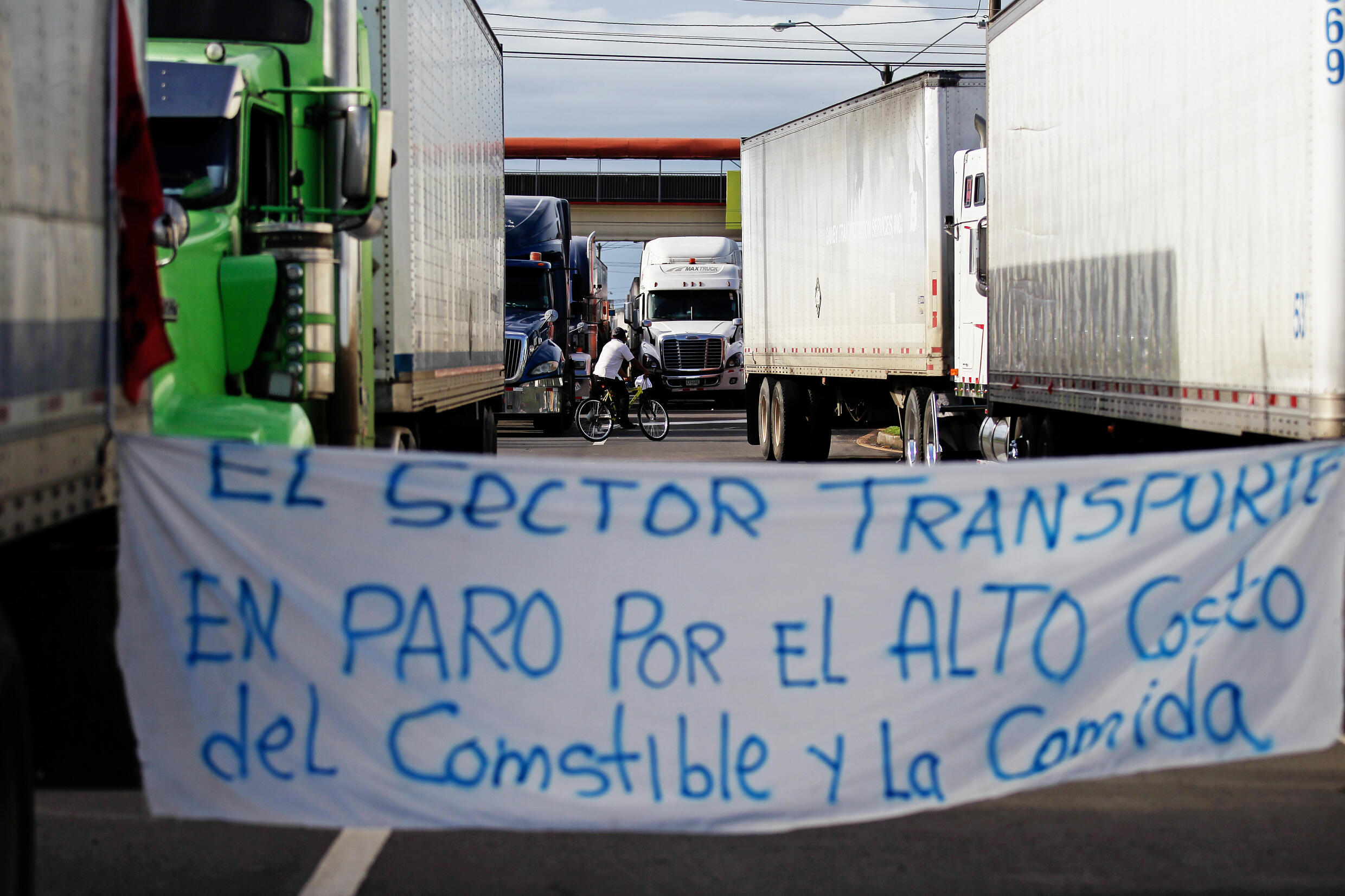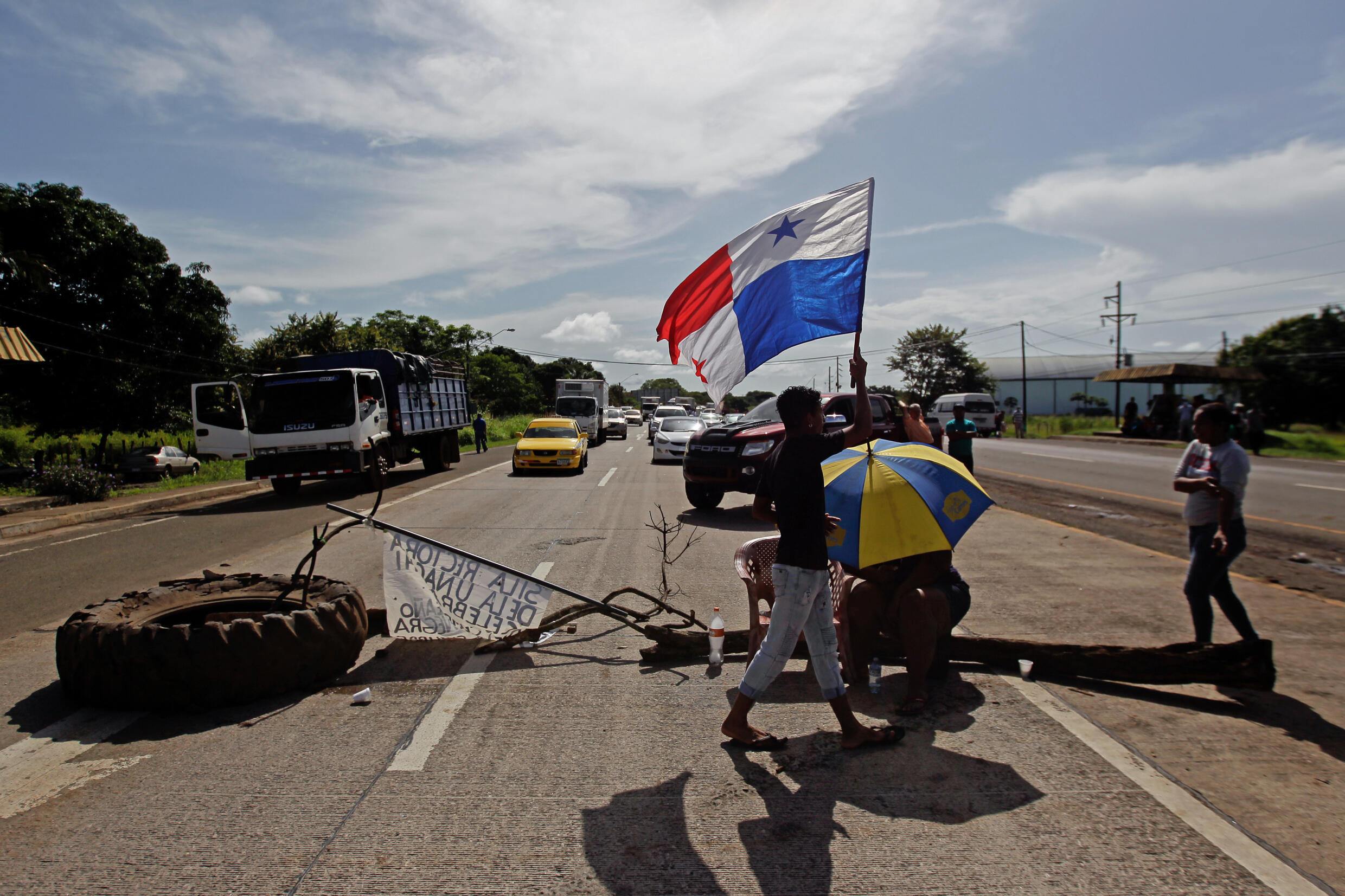Santiago (Panama) (AFP) – With huge trucks or with barricades where neighbors spend the night and even dance, the Pan-American highway in Panama remained blocked this Friday, amid calls for dialogue by the Government and a citizen clamor for the authorities to lower fuel prices. , food and medicine.
From Panama City to the west, along the highway that connects the country with Central America, there are at least a dozen roadblocks that prevent the arrival of supplies not only to the capital, but also to the provinces.
To enter Santiago de Veraguas, some 250 kilometers from the capital, long lines of trucks block the way. It is night and the drivers gather in a common pot that the neighbors prepare.
“This fight belongs to all Panamanians on foot, for the increase in fuel, basic basket, medicines,” explained Eduardo Arroyo, deputy mayor of the district of Atalaya, in Veraguas.
“We have shown that we poor people are more. We are already too beaten, change of government, change of government and the poor, as always, forgotten,” he added.
Entering Santiago, a new barricade, this time of Ngäbe-Bugle indigenous people, blocks traffic. They dance to lessen the wait.

“Here, in the city of Santiago, for the first time you see how the Ngäbe-Bugle people settle in the protests and are accompanied by the people of the surrounding communities,” professor Yadira Pino told the AFP agency.
Panama, with 4.2 million inhabitants, is experiencing one of the biggest social crises since the military dictatorship of General Manuel Antonio Noriega fell in 1989 after the US invasion.
The discontent occurs in a scenario with 4.2% year-on-year inflation registered in May, an unemployment rate of around 10% and an increase in fuel prices of 47% since the beginning of the year.
Despite its dollarized economy, high figures of economic growth and income of more than 2,000 million dollars a year through the Panama Canal, the country has one of the highest rates of inequality in the world.

“In Panama, with a canal that generates billions annually, it is impossible to understand or understand or accept that there are still poverty levels of 20%” of the population, Pino commented.
shortage
Before reaching the border with Costa Rica is the province of Chiriquí, an important supplier of fresh food. The vast majority of legumes, vegetables, potatoes and vegetables that go to the country’s markets are produced in the Tierras Altas district.
However, due to the protests, the products “have not been able to reach the place where they have to go to supply all the national markets,” the mayor of that town, Javier Pittí, warned AFP.
He says that there is also a lack of fuel and that the daily losses “are in the millions.” “The country is totally deprived of supplies,” she added.

In an attempt to calm things down, President Laurentino Cortizo, with a social democratic tendency, announced this week the reduction and freezing of the price of fuel, which went from 5.17 dollars per gallon of gasoline (3.78 liters) to 3.95 from this Friday, and a dozen foods.
However, the unions reject these measures and on Thursday they refused to attend a dialogue table set up by the Government with the mediation of the Catholic Church.
“I have no doubt that with sincere dialogue, without double agendas, we can continue to move forward,” said Cortizo, who described the roadblocks as something “illogical.”

He also accused “some politicians” with “bad intentions” of being “infiltrated” in the protests, although he did not give names.
“Not even the rain stops us”
The marches are also against corruption and waste of authorities in the midst of the crisis.
Mitzila Chanis, a 41-year-old housewife, cries out for the indolence of her authorities: “Politicians are the biggest thieves there can be.”
In the district of Aguadulce, province of Coclé, locals maintain another barricade while enduring a downpour under umbrellas.

“Not even the rain stops us (…) We are desperate, Panama can’t take this anymore,” said Nelly Jaén, a 63-year-old housewife.
In Panama City there were also cuts in the main streets. However, the interoceanic canal operates normally.
“People need and ask to be heard because traditional representative institutions don’t work,” Harry Brown, director of the International Center for Political and Social Studies, told AFP.
“This generation had not experienced a crisis of the magnitude of the one that overwhelms our country today” because there is an accumulation of “unattended demands” and an “obvious deterioration” in living conditions, former Panamanian President Martin warned this Friday. Torrijos (2004-2009).








![[Img #74675]](https://thelatestnews.world/wp-content/uploads/2024/12/They-discover-a-new-class-of-X-ray-sources-in-the-150x150.jpg)





Add Comment